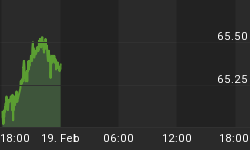Every day, it seems, there's another story about the web of surveillance that's being woven around us by governments and telecom firms and hackers. Between the webcams and DVRs that can be activated remotely to watch us at our desks or in front of our TVs, the warrantless wiretaps that vacuum up millions of phone calls and emails and the data dumps from Facebook and Google into government storage facilities for later mining, the 4th Amendment's freedom from "unreasonable search and seizure" looks like a relic from the days of black-and-white movies.
But this technological arms race has two sides. For every insecure browser or email service, there are several that are, at least so far, beyond the reach of government and corporate spies. A good place to start figuring out how to use them is FixTracking.com, which highlights services like DoNotTrackMe, a blocker of "third-party trackers", and DuckDuckGo, an anonymous search engine.

PRISM Breakis a more extensive site that lists free anti-surveillance tools by category, i.e, browser, search engine, email service, etc.
Also of possible interest is RetroShare, an "Open Source cross-platform, Friend-2-Friend and secure decentralized communication platform. It lets you to securely chat and share files with your friends and family, using a web-of-trust to authenticate peers and OpenSSL to encrypt all communication. RetroShare provides file sharing, chat, messages, forums and channels..."
And this TED talk by Gary Kovacs, titled Tracking the Trackers, highlights a very cool piece of technology.
I can't vouch for any of this yet but will be trying some of the services listed here over the next few months. More about them then.
















